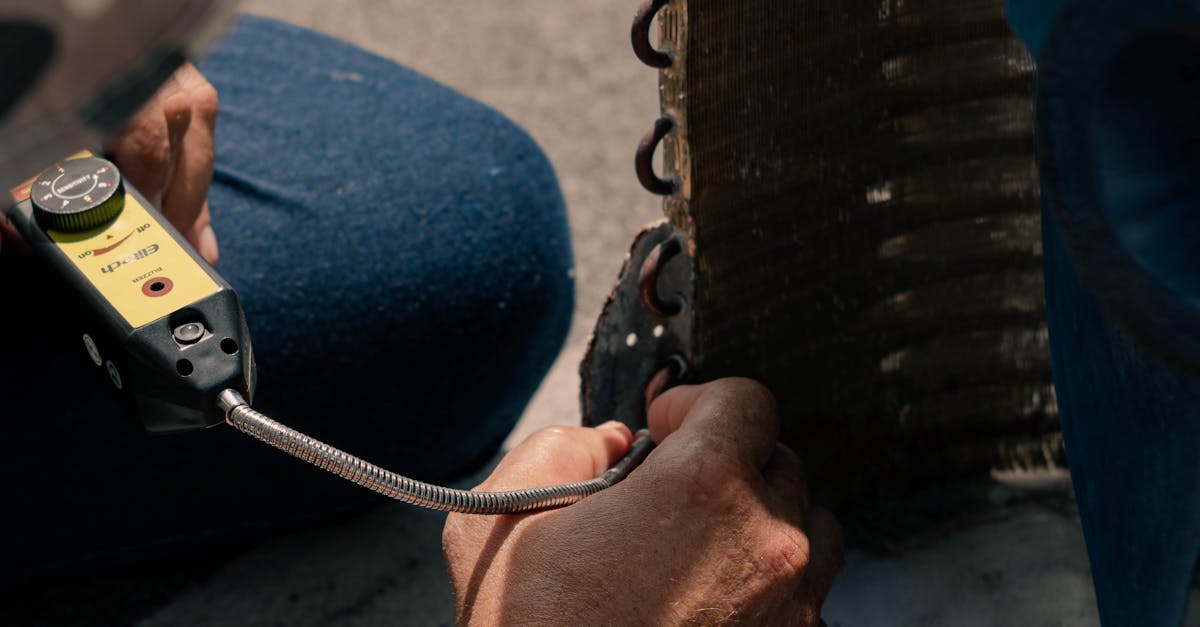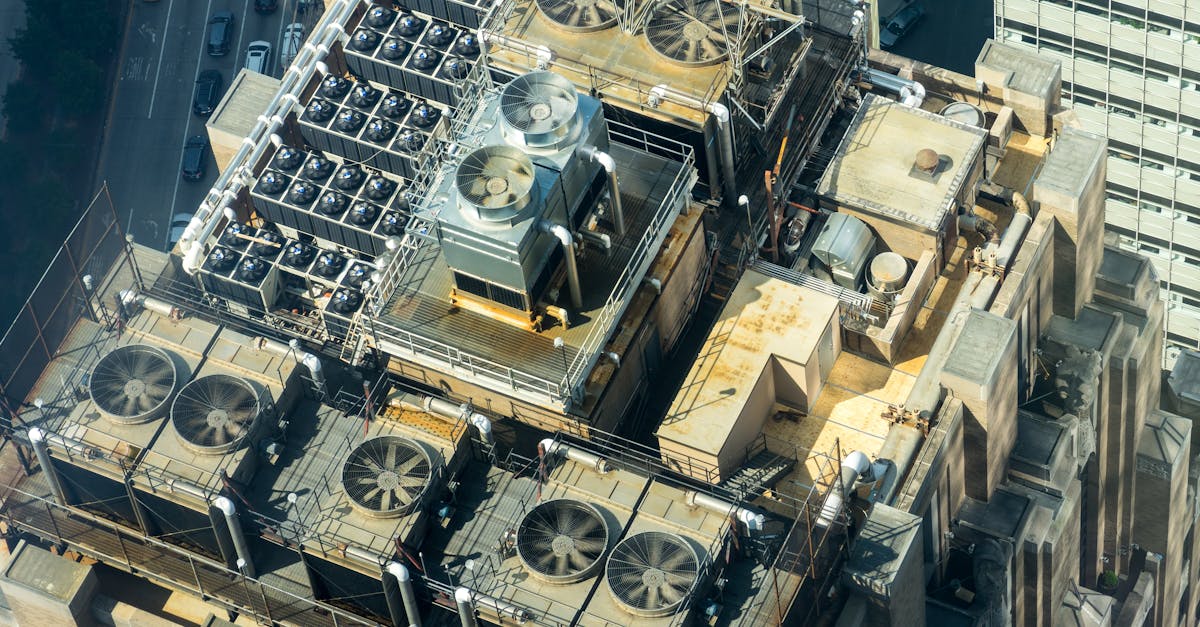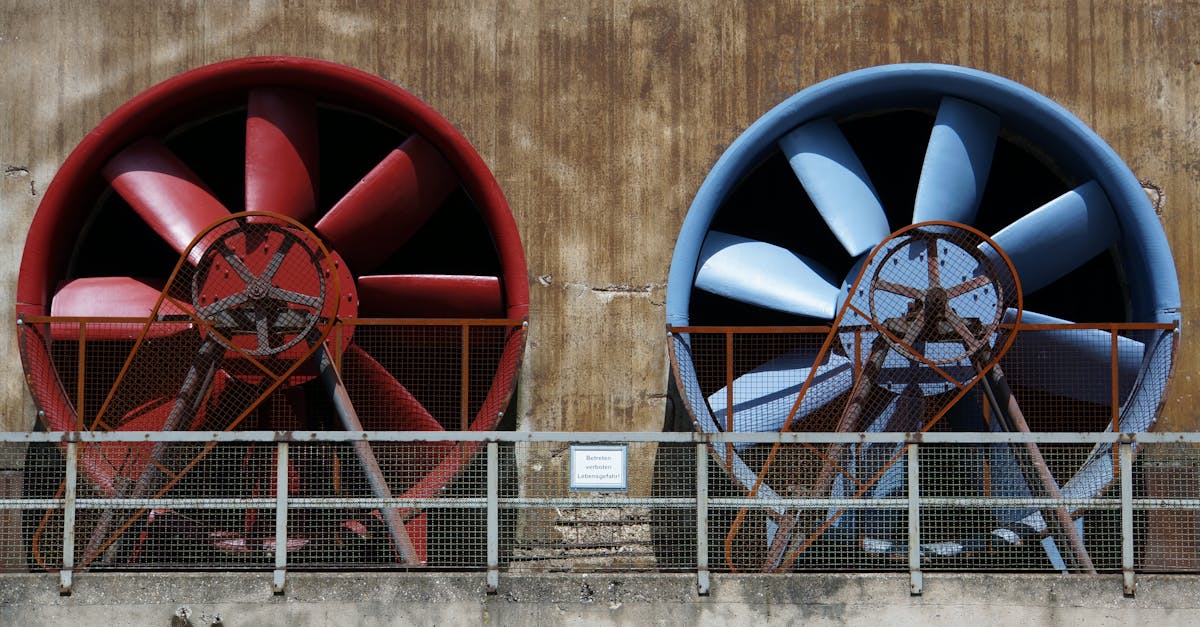
Table Of Contents
Common HVAC Issues
Heating, ventilation, and air conditioning systems can encounter various issues that affect their performance and efficiency. Common problems include inadequate heating or cooling, strange noises, and fluctuating temperatures. Clogged filters often lead to reduced airflow, causing the unit to work harder and eventually fail. Regular maintenance is crucial in addressing these issues before they escalate, ensuring the system operates smoothly and efficiently.
For businesses in need of reliable solutions, Commercial HVAC Services Sutton Coldfield, West Midlands provides comprehensive support. Technicians are equipped to diagnose problems quickly and implement effective repairs. Furthermore, routine inspections help in identifying potential faults early, reducing the risk of costly breakdowns and extending the lifespan of the installation. By prioritising these services, businesses can maintain a comfortable environment for employees and customers alike.
Diagnosing Frequent Problems
Diagnosing frequent problems in HVAC systems requires a systematic approach to identify the underlying issues. Common symptoms include inconsistent temperatures, unusual noises, and increased energy bills. Technicians often rely on a combination of visual inspections and diagnostic tools to pinpoint problems. For instance, checking filters for clogs and inspecting ducts for leaks can reveal causes of reduced airflow. Proper training is crucial as it allows technicians to recognise signs that may indicate more significant failures, ensuring timely interventions.
In the West Midlands, Commercial HVAC Services offer expertise in addressing these common challenges. Responsive service plays a vital role in maintaining optimal performance and minimising downtime for businesses. Technicians may perform routine maintenance checks to establish a baseline for system performance, thus facilitating early detection of potential issues. Comprehensive diagnostic assessments not only assist in resolving immediate concerns but also contribute to the longevity and efficiency of HVAC systems in commercial settings.
The Future of HVAC Technology
The advancement of technology continues to reshape HVAC systems, with significant innovations enhancing efficiency and sustainability. Modern units now utilise smart sensors and controls that optimise energy consumption, resulting in lower operation costs. This shift has made a noteworthy impact on commercial buildings and residential homes alike, reflecting an increasing demand for environmentally responsible solutions.
In regions like Coventry, West Midlands, businesses are beginning to adopt these innovations through specialised commercial HVAC services. Integration of IoT devices enables remote monitoring and system diagnostics, facilitating timely maintenance and reducing downtime. Additionally, the move towards renewable energy sources, such as solar-powered HVAC systems, is paving the way for a more sustainable future in building services. As technology evolves, the HVAC industry will likely see further improvements in both performance and environmental impact.
Innovations and Smart Systems
The integration of smart technology into HVAC systems has transformed how buildings manage heating, cooling and ventilation. Innovations such as programmable thermostats and smart sensors allow for enhanced control over indoor environments. These devices learn user preferences and adjust settings automatically, ensuring optimal comfort while promoting energy efficiency. Businesses are increasingly turning to these advanced solutions to enhance their operational efficiency and reduce energy costs.
In Coventry, West Midlands, companies are leveraging the expertise of Commercial HVAC Services Coventry, West Midlands, to implement these smart systems. The use of connected technologies not only improves system performance but also facilitates remote monitoring and maintenance. This proactive approach can help identify issues before they escalate, ensuring continuous operation and minimising downtime. As a result, businesses are experiencing significant benefits from adopting these innovative HVAC solutions.
Regulatory Standards for HVAC Services
Regulatory standards in HVAC services are essential to ensure safety, efficiency, and environmental compliance. These standards dictate the design, installation, maintenance, and operation of heating, ventilation, and air conditioning systems in various settings. Compliance with local, national, and international regulations not only protects building occupants but also contributes to energy conservation efforts. Commercial HVAC Services Coventry, West Midlands, adhere to these regulations, guaranteeing that their systems meet the required performance criteria.
The importance of following regulations extends beyond safety; it affects system longevity and energy consumption. Regulations set the benchmarks for equipment efficiency, air quality, and emissions, pushing the industry towards more sustainable practices. By prioritising compliance, service providers can offer reliable solutions that benefit both businesses and the environment. Maintaining high standards in HVAC services fosters trust in the industry, especially in regions like Coventry, where commercial HVAC Services Coventry, West Midlands, focus on quality and adherence to regulatory demands.
Safety and Compliance Measures
Ensuring safety and compliance measures in HVAC systems is essential to protect both occupants and the environment. The regulatory standards surrounding these systems often require regular inspections and maintenance by certified professionals. Adherence to these guidelines minimises the risk of malfunctions and hazards, including air quality issues or equipment failure. Proper documentation and certification serve as proof of compliance, which is crucial during audits or inspections.
In Coventry and the wider West Midlands, businesses rely on Commercial HVAC Services Coventry, West Midlands, to remain compliant with local and national regulations. These services provide vital expertise in crucial areas such as equipment installation, ventilation, and energy efficiency. By engaging with qualified technicians, businesses can ensure that their HVAC systems operate safely and efficiently, thereby reducing liabilities and promoting a healthier indoor environment for employees and customers alike.
FAQS
What does HVAC stand for in building services?
HVAC stands for Heating, Ventilation, and Air Conditioning, which are the systems responsible for regulating indoor climate and air quality in buildings.
What are some common HVAC issues that building owners face?
Common HVAC issues include inadequate heating or cooling, poor airflow, strange noises from the system, and frequent cycling on and off, which can indicate underlying problems.
How can I diagnose frequent problems with my HVAC system?
Diagnosing frequent problems typically involves checking filter cleanliness, inspecting thermostat settings, examining ductwork for leaks, and listening for unusual sounds. It’s often best to consult with a professional for a thorough assessment.
What innovations are shaping the future of HVAC technology?
Innovations such as smart thermostats, energy-efficient systems, and IoT (Internet of Things) integration are shaping the future of HVAC technology, making systems more responsive and energy-efficient.
What regulatory standards should HVAC services comply with?
HVAC services must comply with various regulatory standards concerning safety, energy efficiency, and environmental impact, which can vary by region. It’s essential to stay updated with local regulations to ensure compliance.


